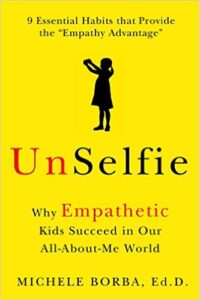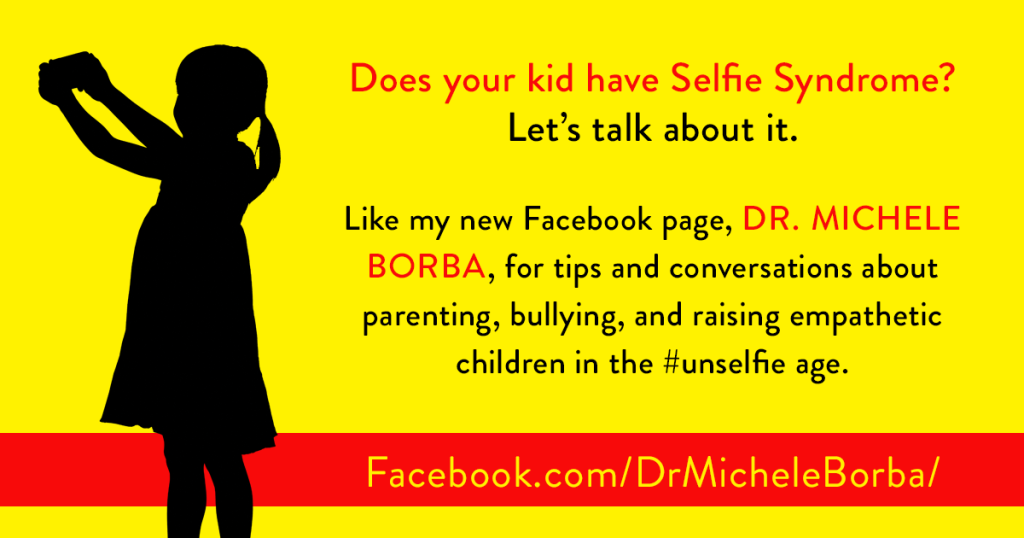Most parents would tell you that sensitive kids usually arrive that way. By nature these children seem more “touchy” from birth: they’re more sensitive to sound and change, tear-up easily, and take criticism far too seriously. Though those traits can be highly desirable (after all, the world certainly needs more compassionate people), being overly sensitive can cause problems in the social jungle. And the biggest reason is that sensitive kids don’t know how to respond to put downs, teases, and critical comments. Instead of shrugging them off, they take the jabs with too much emotion and drama. And that turns the other kids off big time, so over-sensitivity is a frequent cause of friendship problems.
But there’s another concern: over-sensitivity can also cause an Empathy Gap. Instead of using his urges and step in to help a friend in need, the child can dial-down empathetic urges, and then oh the guilt!
Sure you can’t change your child’s natural temperament into a little thick-skinned toughie. And besides you shouldn’t: your son or daughter’s sensitive nature is an asset, so you’ll want to help them see it positively. Besides, your role isn’t to change your child’s natural personality, but to help him cope more successfully and learn to control how he responds. Doing so can make a huge difference in boosting your tender-hearted child’s friendship aptitude and helping him survive in a not-so-sensitive-world. Here are seven ways to keep empathy open and raise what I call an “Unselfie”: empathetic kids who think of others.
1. Respect Feelings
Your sensitive kid is a feeling person so acknowledge his feelings. Doing so often helps him open up and discuss his concerns. “You look so distressed.” “I’m so sorry you’re so upset. When you calm down a bit we can talk.” “I know you’re really mad that your friend made fun of you.”
2. Give Control
Stress to your child that he has control on how he chooses to react to another child. “You can’t control what another person says or does, but you can control how you respond.” “You may not be able to stop that kid from being so mean, but if you practice you can learn not to cry when he calls you names.” “I don’t want you to ever stop being such a caring person. That’s one of the your greatest gifts. But you can learn how to not how to make your face not look so upset.”
3. Point Out the “Wrong Look”
Don’t assume that your child knows what she does that turns kids off. She may have been using that grimace, pout, scowl (or whatever else) so long that’s she unaware she’s doing it. So causally bring it up when the two of you are alone: “I notice that when you’re upset you make a certain face. Do you know what I mean?” (If not, show her). “Do you think that face would make friends want to be with you or leave you alone? What do kids do what you make that face? Let’s think of other things you can do when you’re upset that won’t turn kids off.” Yes, this is difficult, but the new strategy is used in numerous child development centers around the world. Lots of practice and encouragement is needed.
4. Offer Replacers
If your child tears-up easily, he’ll need to learn what to do instead of crying. Talk about possible suggestions and then have your child choose the one he likes best. “Think of a really fun place inside your head, and make your mind go there. Walk away really quickly. Clear your throat and bite your tongue. Count to 10 inside your head. Hum a song (only inside your head). Take a long, slow breath.” In order for the “crying replacement” to become a habit, he’ll have to practice it again and again.
5. Teach How to Use a Firm Voice
Whimpering, crying, whining, yelling, whispering, quivering voice tones are kid turn offs. So tell your child before he talks to clear his throat, think solid and strong. He’ll need to distinguish between voice tones, so role-play various tones and have him practice different voices until he can speak with a confident voice.
6. Teach “So What?”
As soon your child knows he might get upset is when he need to look as if couldn’t care less. He needs to learn a “So what?” or “No big deal” kind of look. Try modeling it. Here are the main parts: First, tell him not to even glance at the kid. Instead, he should shrug his shoulders, look off in the sunset and walk away if possible. Even a subtle shaking of the head can help achieve a “So what, I couldn’t care less” appearance.
The most important thing you can do for an overly-sensitive child is help her learn how to control her reactions to peers by teaching her coping skills so she deal with any situation that may come her way.
7. Watch Labels
Highly sensitive kids are often stereotyped as overly inhibited, fearful, or fussy, or problem children. So don’t let teachers, family or friends label your child and don’t do so yourself.
Dr. Michele Borba, Parenting Expert
 I am an educational psychologist, parenting expert, TODAY show contributor and author of 22 books. You can also refer to my blog, Dr. Borba’s Reality Check for ongoing parenting solutions and late-breaking news and research about child development.
I am an educational psychologist, parenting expert, TODAY show contributor and author of 22 books. You can also refer to my blog, Dr. Borba’s Reality Check for ongoing parenting solutions and late-breaking news and research about child development.
My new book, UNSELFIE: Why Empathetic Kids Succeed in Our All-About-Me World is in print June 7 2016. (Yahoo!) I’ve spent the last ten years researching and writing this book as well as literally flying around the world to find the best ways we can activate our children’s hearts. My goal is to create a conversation that makes us rethink or view of success as exclusively grades, rank and score and includes traits of humanity! It’s filled with common-sense solutions based on the latest science to help us raise compassionate, caring, courageous kids. It’s time to include “empathy” in our parenting and teaching!
Follow me on twitter @MicheleBorba


